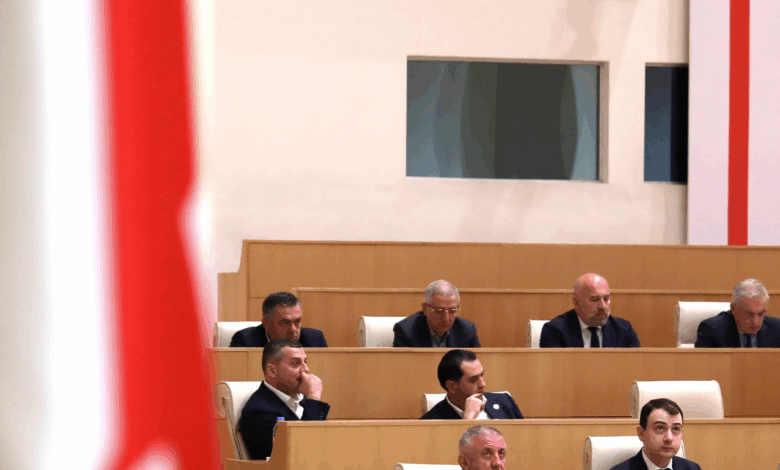
GD Bans Drug Replacement Therapy, Psychotropic Imports for Private Sector
Private entities will be banned from offering opioid replacement therapies, as well as from importing and distributing psychotropic drugs, according to the amendments fast-tracked by the Georgian Dream one-party parliament during a July 1-2 extraordinary session.
Per changes to the Law on Narcotic Drugs, Psychotropic Substances and Precursors, and Narcological Assistance, passed amid the ruling party’s intensified anti-drug rhetoric, the state will assume full responsibility for both services.
Announcing the changes at a June 25 briefing, GD Prime Minister Irakli Kobakhidze accused “pseudoliberal ideology” of deliberately promoting drug addiction, calling it “the gravest illness” and saying it had been “artificially imposed” on Georgian society. Kobakhidze also claimed the ideology tries to “present the consumption of marijuana and so-called club drugs as fashion.”
“This pivotal legislation encapsulates the interests of every family and citizen,” Georgian Dream MP Zaza Lominadze said during the plenary session, further claiming that the changes would contribute to Georgia’s “well-being” and the “prosperity of future generations.”
Georgia currently runs two drug replacement therapy programs: a state-operated methadone program and another using buprenorphine/naloxone, which is partly managed by private entities. Narcologist Zurab Sikharulidze estimates that about 14,000 people use the state program, while 2,500 are treated privately.
Kobakhidze alleged that private programs are designed not to cure patients but to “legally supply narcotics,” driven by a commercial interest in maximizing drug sales. He voiced similar concerns about psychotropic drug imports, accusing private companies of “artificially encouraging” demand.
Still, some experts question the necessity of the move. Sikharulidze noted that the Health Ministry already controls the import and sale of psychotropic substances.
The move comes amid Georgian Dream’s declared “uncompromised” fight against drug dealers and its broader tightening of drug policy. During the same July 2 session, GD lawmakers also made possession of more than five grams of marijuana a criminal offense, punishable by up to six years in prison.
Also Read:
- 10/06/2025 – 7 Arrested for Drug-Related Crimes
- 18/03/2025 –GD to Introduce Forced Treatment of Drug Crime Convicts
- 11/03/2025 – GD Announces Tougher Drug Policy
- 17/08/2023 – Local Watchdog on Drug Policy Trends in 2022 Reveals Continued Emphasis on Punitive Measures
This post is also available in: ქართული